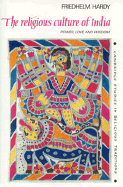Book contents
- Frontmatter
- Contents
- Illustrations
- Preface
- Power: the challenges of the external world
- Love: the rhythms of the interior world
- 9 The missing colour
- 10 The landscape of the heart
- 11 The deadly weapons of Mara
- 12 Beyond the fleeting moment
- 13 Cosmic desire
- 14 Love abiding in stone
- 15 The melting of the heart
- 16 Return to the world
- Wisdom: commuting within one world
- Notes
- Index
12 - Beyond the fleeting moment
from Love: the rhythms of the interior world
Published online by Cambridge University Press: 09 February 2010
- Frontmatter
- Contents
- Illustrations
- Preface
- Power: the challenges of the external world
- Love: the rhythms of the interior world
- 9 The missing colour
- 10 The landscape of the heart
- 11 The deadly weapons of Mara
- 12 Beyond the fleeting moment
- 13 Cosmic desire
- 14 Love abiding in stone
- 15 The melting of the heart
- 16 Return to the world
- Wisdom: commuting within one world
- Notes
- Index
Summary
The poets may agree with the renouncers that love is a fickle, transient and even potentially destructive affair. The renouncers may agree with the rest of the populace that not everybody is immediately ready to accept their ruthless, cerebral rejection of the passions lurking in the human heart, and therefore consent to some compromise. Desire and ignorance may be the root cause of continued rebirth, but religious merits and their appropriate rewards can at least add some pleasure to it. All this sounds very much like an entertaining, but ultimately inconsequential panel discussion. ‘Interesting, but so what?’ we may want to comment at the end of it. However, we are not dealing here with media entertainment, but with different cultural traditions and their drastically different value-systems which–and this is the crucial point–may well meet in one and the same individual and turn him into their battlefield. In our own parlance, we could speak of a possible neurosis, if this individual does not resolve such conflicts of values, or of repression, if one side is merely pushed, unresolved, into the dark recesses of the subconscious. A poet like Bhartrhari speaks of an agonizing contest between the mind and the heart.
Most chairpersons of panel discussions are too busy to raise questions of ‘truth’, if only in order to prevent libellous accusations or physical violence between the different members of the panel.
- Type
- Chapter
- Information
- The Religious Culture of IndiaPower, Love and Wisdom, pp. 252 - 273Publisher: Cambridge University PressPrint publication year: 1994

